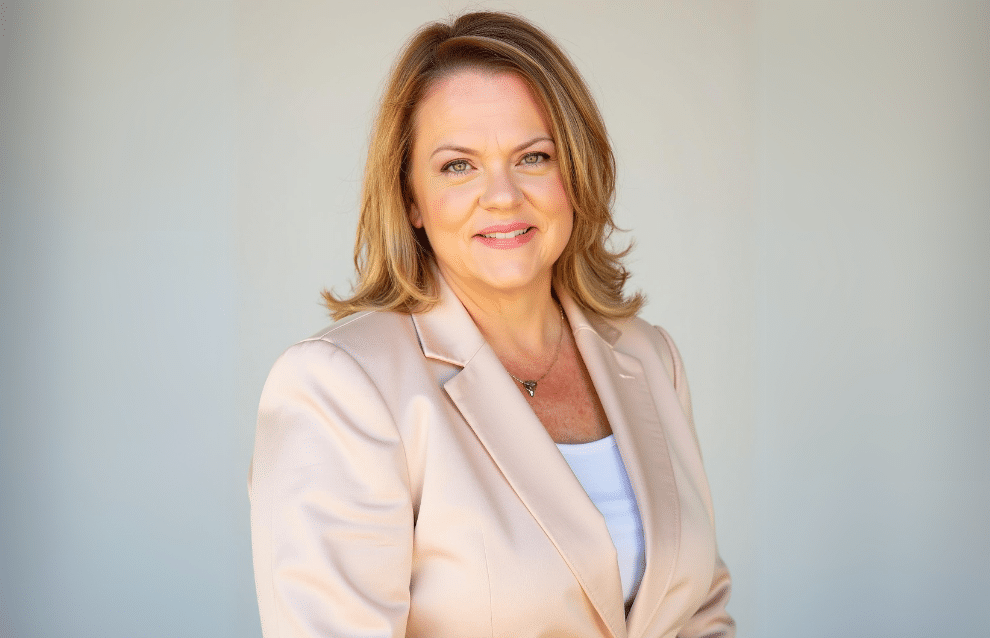
For decades, the television industry has maintained an uneasy relationship with emotional storytelling, often dismissing shows centered on relationships and personal journeys as mere “melodrama.” Yet as streaming platforms have transformed entertainment, traditional assumptions about genre and audience are being challenged, with industry leaders who understand the power of emotional storytelling emerging as key architects of contemporary television.
Among these leaders, Lisa Hamilton Daly stands out from the pack. A veteran television executive whose career spans Netflix, and Lifetime, she has shaped hit series including Virgin River, Firefly Lane, and Sweet Magnolias. After transitioning from academia to entertainment through roles at Dreamworks, A+E Networks, and most recently serving as a Director at Netflix, Daly has taken a bold stance: Rather than shy away from the word melodrama, she’s embraced it — challenging long-standing industry biases and making a powerful statement about the value of emotional authenticity in entertainment.
“I want to reclaim it,” Hamilton Daly declares. “I want to make it OK to talk about women’s feelings. They used to have women’s pictures and it was about women’s emotions. And so I feel like that for me, that became kind of a crusade because I started working at places where doing stuff that was about for women was really looked down upon. And so I thought, ‘I’m going to reclaim this.’”
Understanding Melodrama
Melodrama has a rich history in entertainment, dating back to 19th-century theater, when dramatic works that emphasized emotional experiences and moral polarization were popular. Directors like Douglas Sirk became known for “women’s pictures” — films that explored domestic life, relationships, and social issues through an emotional lens. These works often featured heightened dramatic situations, intense personal conflicts, and a focus on the everyday struggles of ordinary people.
However, as television evolved, “melodrama” transformed from a descriptive term into a criticism, particularly when applied to female-focused programming. Critics began using it dismissively to suggest that content prioritizing emotional experiences and relationships was somehow less sophisticated or worthy than other forms of storytelling. This shift reflected broader cultural biases about which stories deserved serious consideration and which could be dismissed as mere entertainment for women.
When Lisa Hamilton Daly named her development pod at Netflix “Melodrama and Romance,” the reaction was telling. Even fellow female executives questioned the decision, reflecting the deep-seated bias against emotional storytelling in the industry. “One of the other female executives asked, ‘Why would you want to call something melodrama?'” For Daly, the choice to embrace rather than avoid the term was strategic. By explicitly focusing on emotional storytelling, she aimed to challenge the implicit hierarchy that places action-driven narratives above relationship-focused ones. This approach also aligned with her understanding that audiences crave authentic emotional experiences, regardless of how critics might categorize them.
Drama’s Double Standard
Lisa Hamilton Daly’s criticism of industry double standards is particularly incisive when examining how similar storytelling elements are received differently based on gender associations. She points to Game of Thrones as a prime example: “It’s just a soap opera with rape and men in the forest … but somehow they elevate things that are male and masculine and think, ‘Oh, this is great.'”
This observation cuts to the heart of how emotional content is categorized and critiqued. While male-centered shows can freely incorporate emotional drama without being labeled melodramatic, female-focused series often face immediate categorization as “women’s programming” or “guilty pleasures,” regardless of their complexity or craft.
Daly’s approach to melodrama represents a fundamental shift in how emotional storytelling is positioned for contemporary audiences. Rather than apologizing for emotional content or trying to disguise it as something else, she advocates for direct engagement with feelings and relationships as central rather than peripheral elements of storytelling.
“I think about whether I would stop scrolling on the Netflix endless scroll when I see this show,” she explains, describing her development process. This focus on authentic emotional appeal has proven successful, with series like Virgin River and Sweet Magnolias finding dedicated audiences who appreciate their unabashed embrace of emotional storytelling.
The Cultural Moment for Melodrama
The current cultural and political climate adds another layer of complexity to the role of emotional storytelling in television. “We’re in a really weird political moment right now,” Hamilton Daly observes. “Is it your escapism? Do we want to pretend that we’re not living in this moment right now? Or do we want to watch shows that are about people who fight back?”
These questions highlight the dual nature of melodrama in contemporary television — its ability to serve both as comfort viewing and as a means of processing real-world experiences through emotional storytelling. Daly’s work suggests that successful programming must navigate both these functions, providing emotional resonance while acknowledging the complexities of modern life.
Through her work, Lisa Hamilton Daly is helping to establish new criteria for evaluating television content — criteria that acknowledge emotional depth as a strength rather than a limitation. This shift challenges traditional industry hierarchies while opening new possibilities for storytelling that privileges emotional authenticity over conventional notions of prestige.
“I want to make really high-quality things that speak to women where they are,” she states, emphasizing that emotional content deserves the same level of craft and attention as any other form of television. This commitment to quality while maintaining emotional authenticity has helped demonstrate that melodrama and excellence are not mutually exclusive.
By reclaiming melodrama, Lisa Hamilton Daly has contributed to a broader transformation in how emotional content is valued in television. Her success suggests that audiences are increasingly ready for programming that engages seriously with emotional experiences and relationships, regardless of traditional genre labels or critical prejudices.
Hamilton Daly’s take on emotional storytelling provides a valuable model for creating content that resonates deeply with viewers while challenging industry assumptions about genre and value. Her work points toward a future where the worth of a story is judged not by its adherence to conventional hierarchies of prestige, but by its ability to create meaningful connections with its audience.

Latest Posts
-


Film Reviews
/ 4 hours ago‘Fear Street: Prom Queen’ review: Dir. Matt Palmer (2025)
It has been four years since Leigh Janiak’s Fear Street trilogy took horror fans...
By Kat Hughes -


Film Reviews
/ 5 hours ago‘The Surrender’ review: Dir. Julia Max (2025)
As Julia Max’s debut feature, The Surrender, unfolds, the inspirations for the film become...
By Kat Hughes -


Film Trailers
/ 2 days agoFirst trailer for Darren Aronofsky’s ‘Caught Stealing’
Sony Pictures has released the debut trailer for Darren Aronofsky’s new film Caught Stealing,...
By Paul Heath -


Film Reviews
/ 3 days ago‘Lilo and Stitch’ review: Dir. Dean Fleischer Camp (2025)
Director Dean Fleischer Camp won audiences over with the fantastic Marcel the Shell with...
By Kat Hughes






